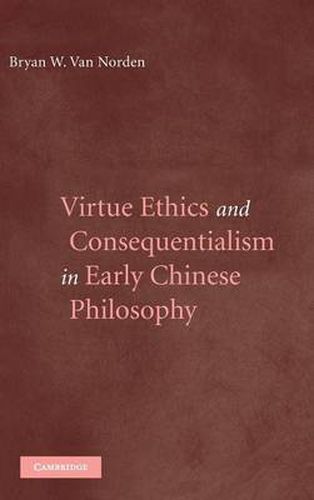Readings Newsletter
Become a Readings Member to make your shopping experience even easier.
Sign in or sign up for free!
You’re not far away from qualifying for FREE standard shipping within Australia
You’ve qualified for FREE standard shipping within Australia
The cart is loading…






In this book Bryan W. Van Norden examines early Confucianism as a form of virtue ethics and Mohism, an anti-Confucian movement, as a version of consequentialism. The philosophical methodology is analytic, in that the emphasis is on clear exegesis of the texts and a critical examination of the philosophical arguments proposed by each side. Van Norden shows that Confucianism, while similar to Aristotelianism in being a form of virtue ethics, offers different conceptions of ‘the good life’, the virtues, human nature, and ethical cultivation. Mohism is akin to Western utilitarianism in being a form of consequentialism, but distinctive in its conception of the relevant consequences and in its specific thought-experiments and state-of-nature arguments. Van Norden makes use of the best research on Chinese history, archaeology, and philology. His text is accessible to philosophers with no previous knowledge of Chinese culture and to Sinologists with no background in philosophy.
$9.00 standard shipping within Australia
FREE standard shipping within Australia for orders over $100.00
Express & International shipping calculated at checkout
In this book Bryan W. Van Norden examines early Confucianism as a form of virtue ethics and Mohism, an anti-Confucian movement, as a version of consequentialism. The philosophical methodology is analytic, in that the emphasis is on clear exegesis of the texts and a critical examination of the philosophical arguments proposed by each side. Van Norden shows that Confucianism, while similar to Aristotelianism in being a form of virtue ethics, offers different conceptions of ‘the good life’, the virtues, human nature, and ethical cultivation. Mohism is akin to Western utilitarianism in being a form of consequentialism, but distinctive in its conception of the relevant consequences and in its specific thought-experiments and state-of-nature arguments. Van Norden makes use of the best research on Chinese history, archaeology, and philology. His text is accessible to philosophers with no previous knowledge of Chinese culture and to Sinologists with no background in philosophy.